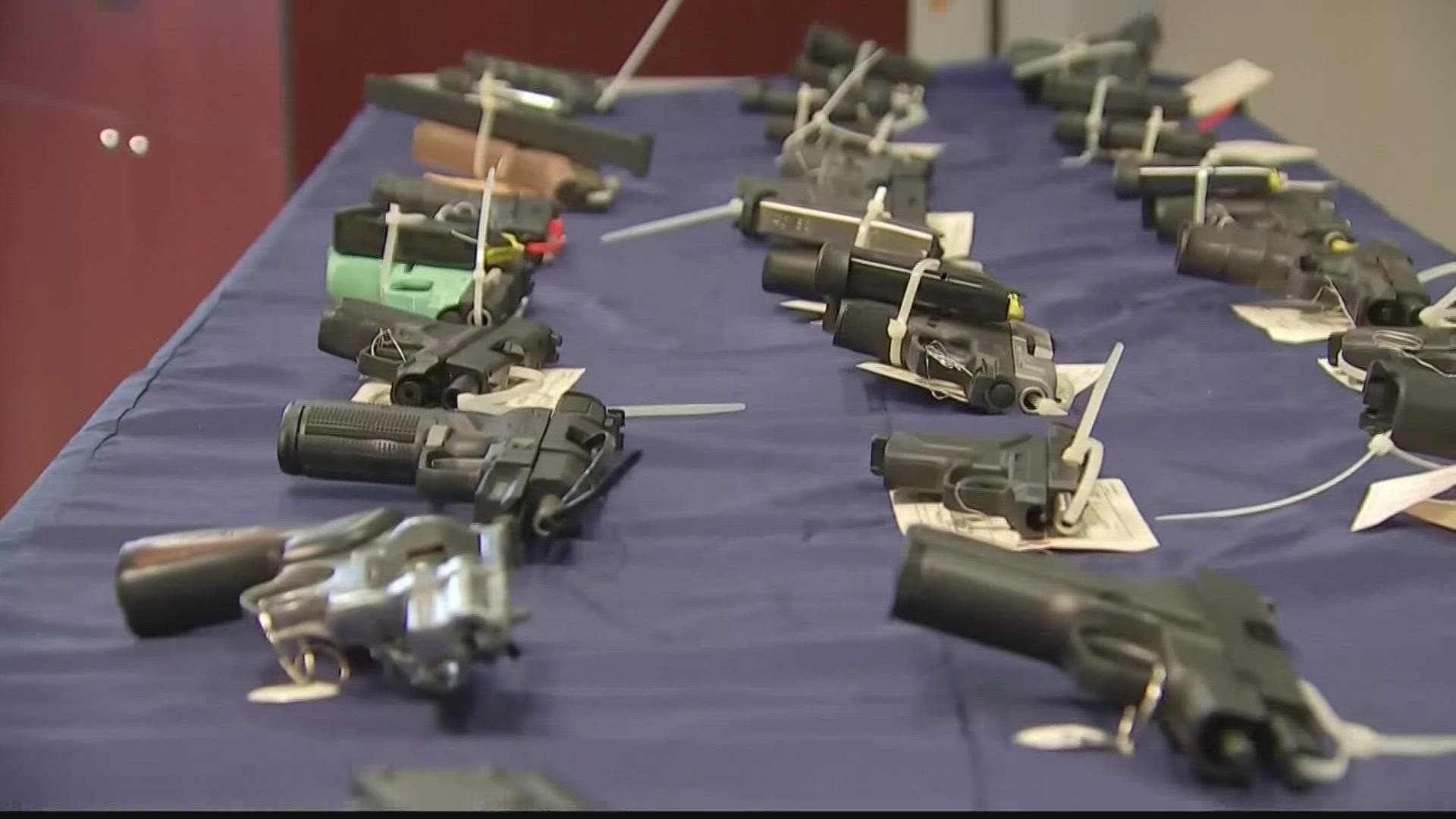ATLANTA — After a mass shooting, there is mourning, grief, and outrage. Then, the conversations start on how to prevent another tragedy from happening.
It undoubtedly always lands on the same topic – guns. Gun control, gun laws, more guns, less guns, illegal guns, who can get guns, types of guns and what to do about them.
In the United States, there’s also the Second Amendment to consider. 11Alive's Hope Ford decided to look at how other countries frame their firearm legislation and took these options to legal analyst Page Pate.
He explained even with the constitutional right to bear arms there are still different levels of gun restrictions that can be passed in the U.S.
“There's a lot of room for regulation," he said. "A lot of things can be done here that are being done in other countries: banning assault rifles, putting restrictions on how a person can carry a firearm; all of that can be done here.”
Several countries took different actions to address gun violence after mass shootings.
In 1996, a man killed 16 children and their teacher in Scotland. The 1997 Firearms Act restricted ownership of almost all handguns. The Office for National Statistics found, “there was a long-term downward trend in offences involving firearms between the year ending March 2004 and the year ending March 2014. The number of offences fell by 68%.”
Australians turned over 650,000 guns in less than a year after the country’s largest mandatory buyback program was established. This happened after a man killed 35 people and wounded 28 more. Research showed gun related suicides and homicides dropped in the years that followed.
More recently, in New Zealand, gun sales and ownership were restricted following the deaths of 51 Muslim worshippers at two mosques. In addition, the parliament in a nearly unanimous vote, banned almost all semi-automatic weapons and assault rifles, as the shootings were carried out with an AR-15 style rifle.
In Brazil, research shows firearms deaths decreased after federation units began collecting weapons in 2004.
Pate pointed out how countries didn't necessarily ban all firearms completely but instead regulated them. He added the Second Amendment is often misinterpreted and doesn’t have as much power as some people may think.
“There's no constitutional provision that prohibits a legislature from determining what types of firearms people can purchase, what level of ammunition they can purchase and store," he said.
Pate said clarification on what the Second Amendment actually allows is a recent conversation, citing 2008’s Supreme Court decision in the District of Columbia v. Heller.
“Before 2008, the Supreme Court had not even said that the Second Amendment applies to individual possession of firearms, there was still an argument. The Constitution only allows possession of firearms in connection with a militia,” said Pate. “Well, Heller was the first decision to say ‘no, it doesn't just apply to service in a militia. It also applies to the individual right to carry and possess firearms, but only in the home.’”
And clarification on what the Second Amendment allows and doesn't allow is still up for debate, even in 2022, as seen in the case before the Supreme Court, New York State Rifle & Pistol Association Inc. v. Bruen.
“The current case is considering whether a state or local government can limit or even completely prohibit an individual from carrying a firearm outside of their own home for whatever purpose it may be. So, you know, there's a lot that still has not been litigated," he said.
If the Supreme Court strikes down the law being debated in Bruen, it would expand gun rights in America. Pate said the decision is likely to come down soon on that case.
Pate added it’s politics, not the Second Amendment, that prevents gun restrictions in America.
“It's a political question. It's not a constitutional question," he said.
"The only thing we know that the Constitution prohibits under current Supreme Court case law is the government trying to take everyone's gun away from them from their home. That's the one thing we know a state cannot do, a city cannot do, Congress cannot do, (is) going into everybody's home and taking out their firearms that they were using for self-defense. It’s wide open as far as potential restrictions.”

